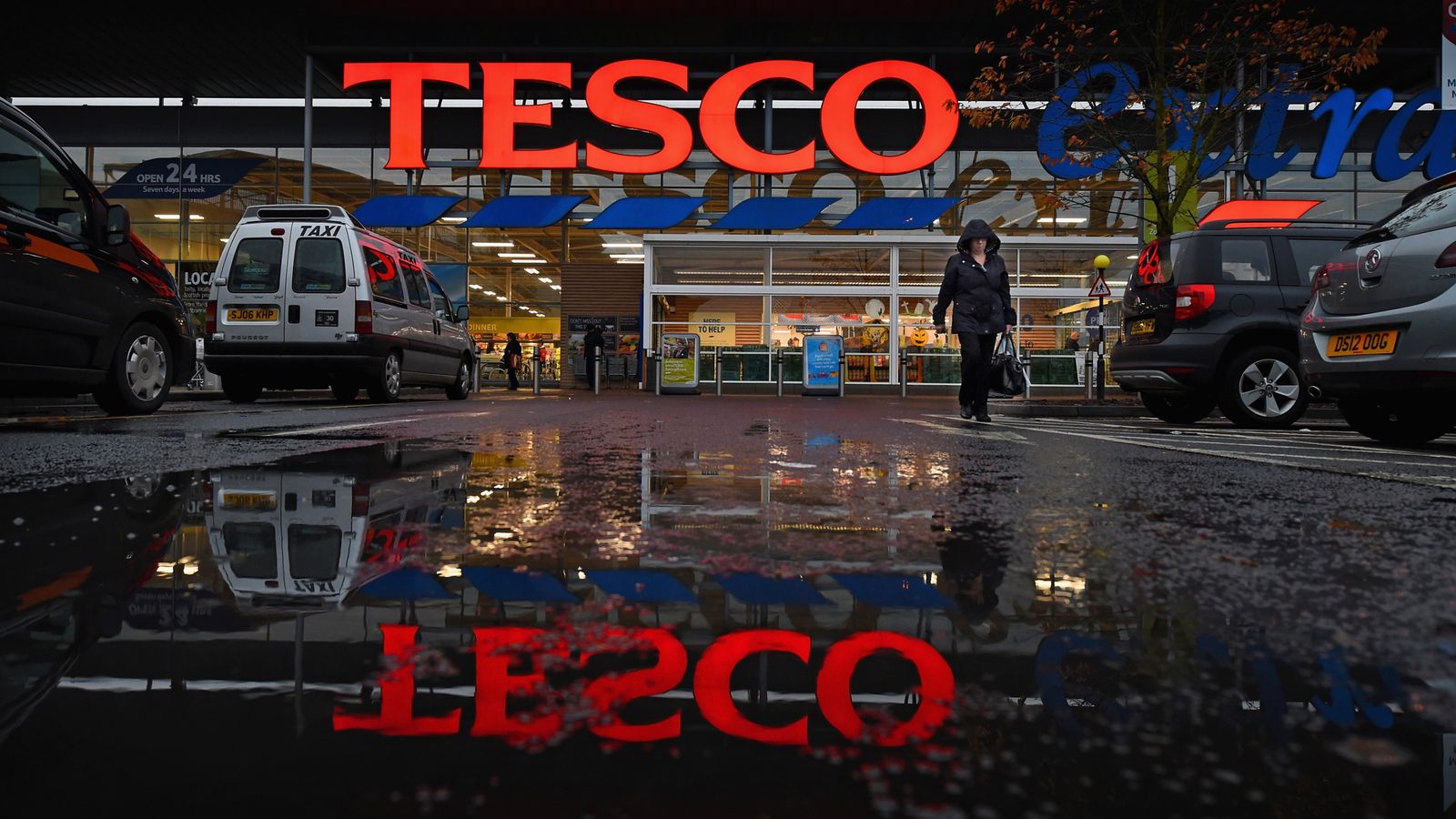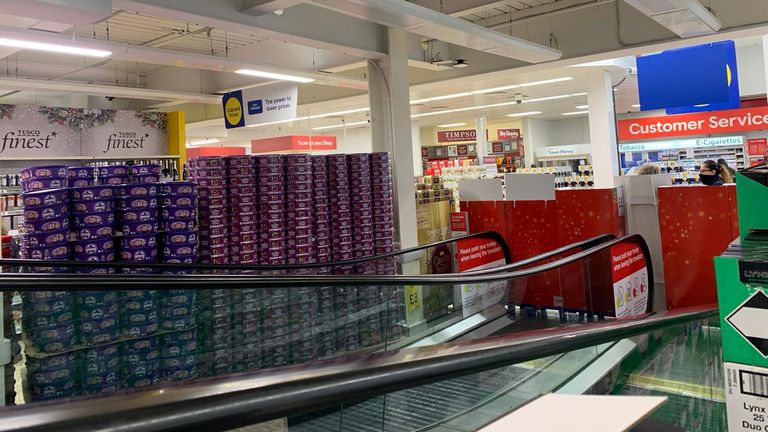Supermarkets – including Tesco and Sainsbury’s – are reportedly blocking off access to parts of their stores following advice from the UK government for the English lockdown.
It comes after controversy over similar sights in Wales when they went into a two-week national lockdown last month.
Following guidance published by the UK government on 5 November, shops in England that have “sufficiently distinct parts” were told they should close the areas selling non-essential items.
People have complained on Twitter about not being able to get to clothes and other parts of their shops – with complaints aimed at Tesco and Sainsbury’s.
Shoppers have reported being unable to get access to baby clothes and other items due to the new restrictions.
But Tesco is advising that staff could help people get what they want if they ask.
A Tesco spokesperson said: “In line with new government guidance in England which requires the closure of separate floors selling non-food items, we have closed the Clothing and General Merchandise departments in our stores that sell these products from a separate mezzanine level.”
The guidance from the UK government said: “Where a business has sufficiently distinct parts, and one section provides essential retail and one section provides non-essential retail, the non-essential sections should close to limit interactions between customers and the opportunity for the disease to spread.
“Sufficiently distinct sections might involve operating in separate buildings, across separate floors, a door between sections, using separate cashiers, or another clear demarcation between sections.
“For example a food shop may stay open, but a homeware section on a separate floor or separate building should close.”
The guidance adds that shops are not required to cordon off particular aisles, and that “a business selling a significant amount of essential retail may also continue to sell goods typically sold at non-essential retail”.

